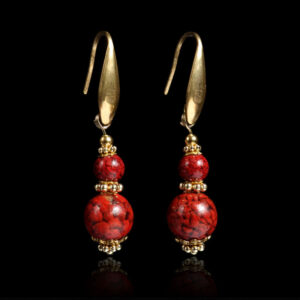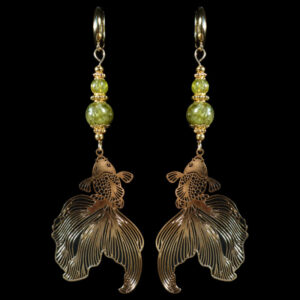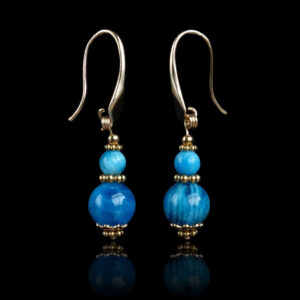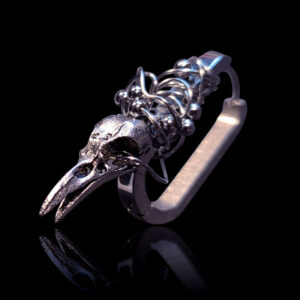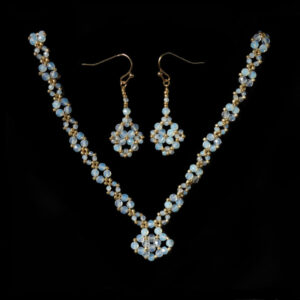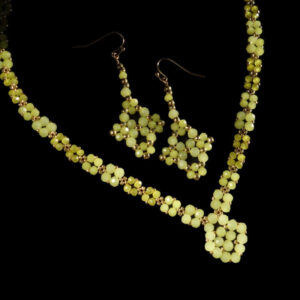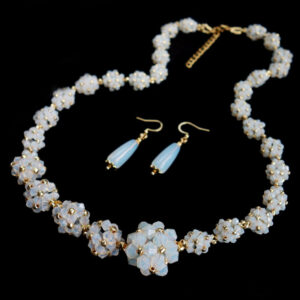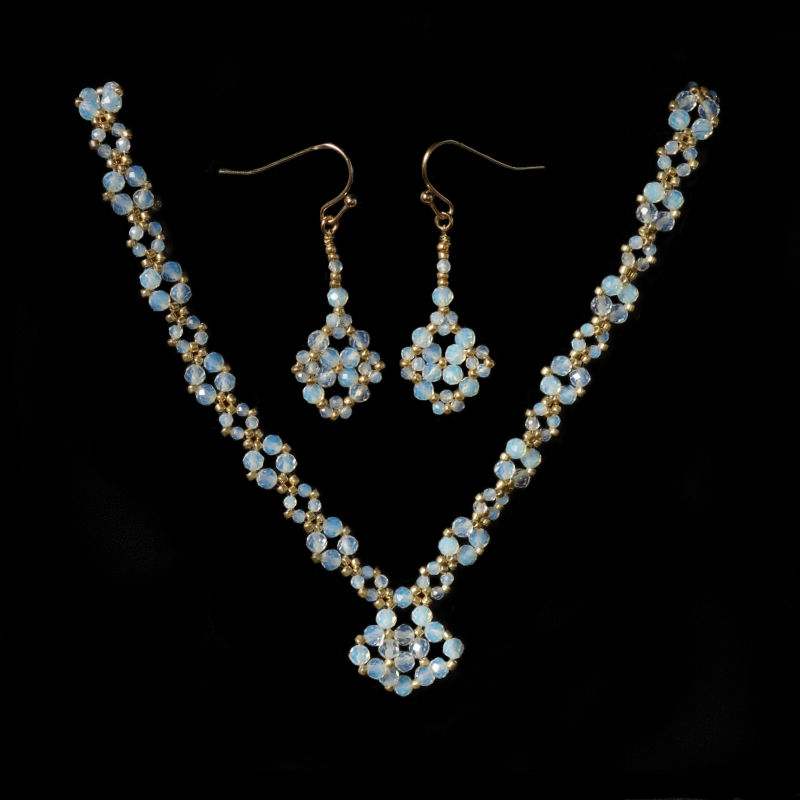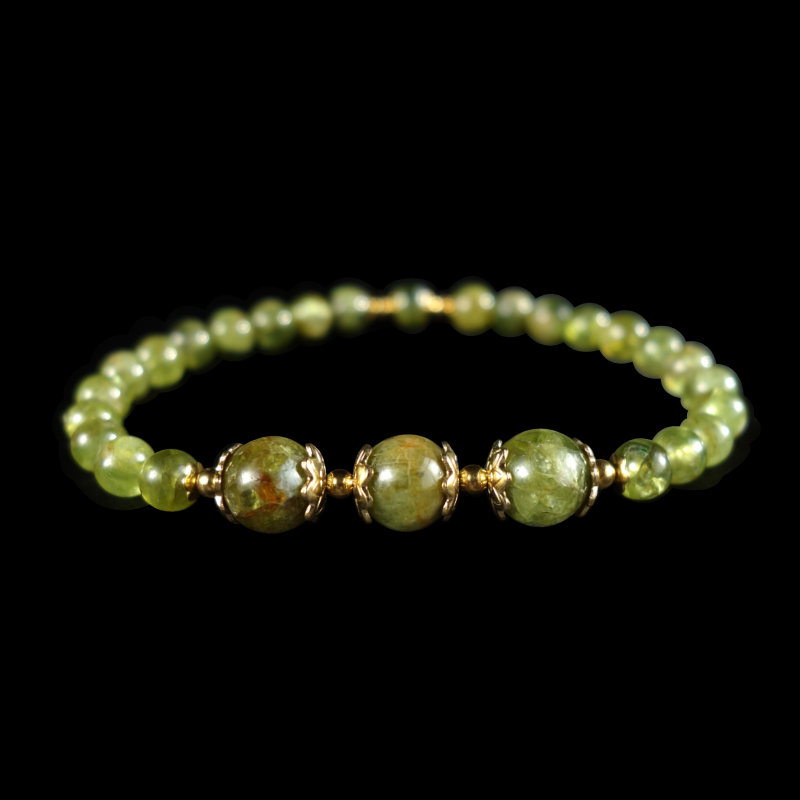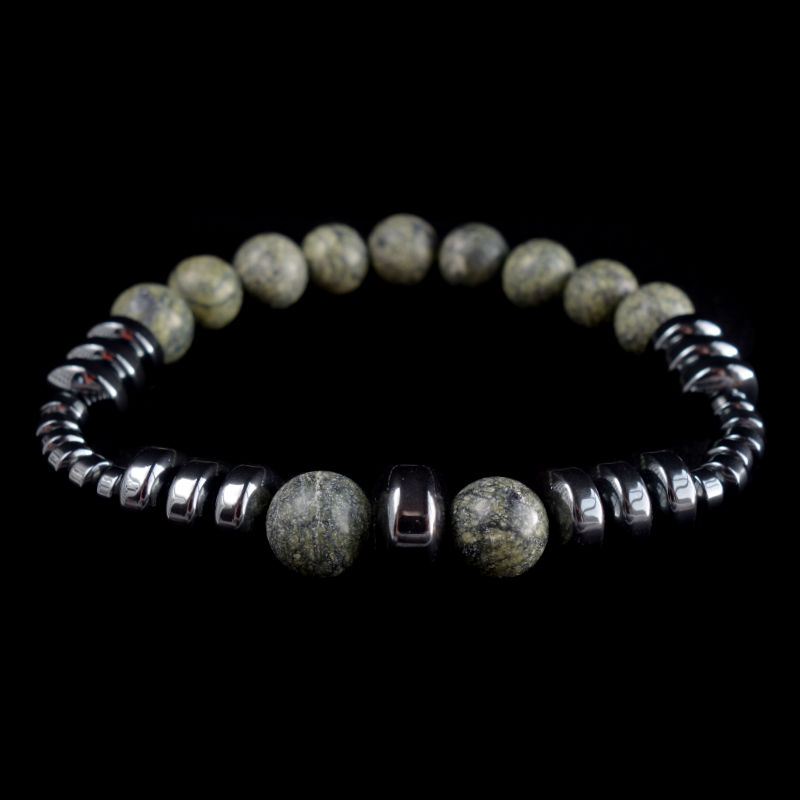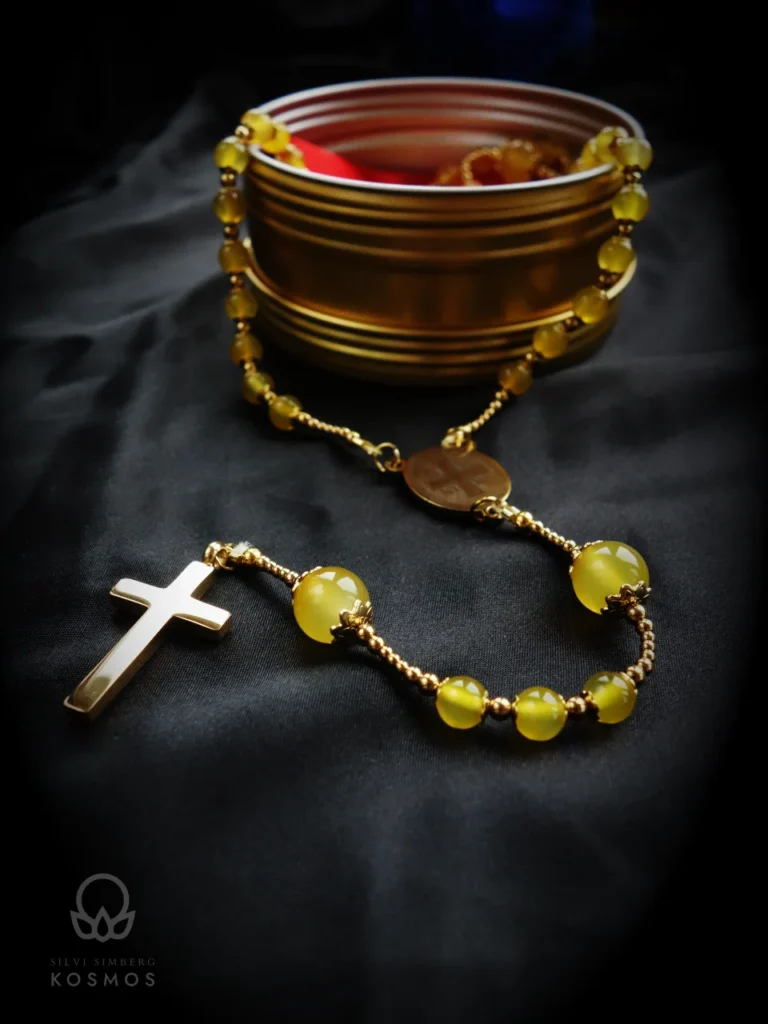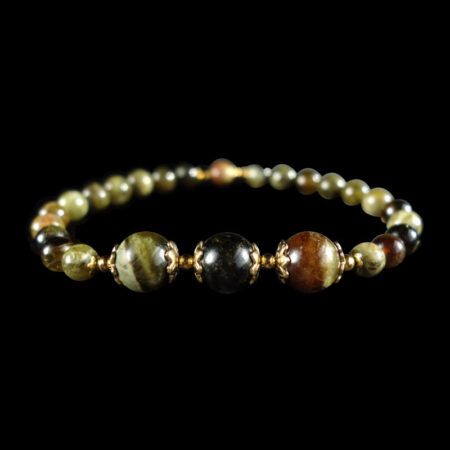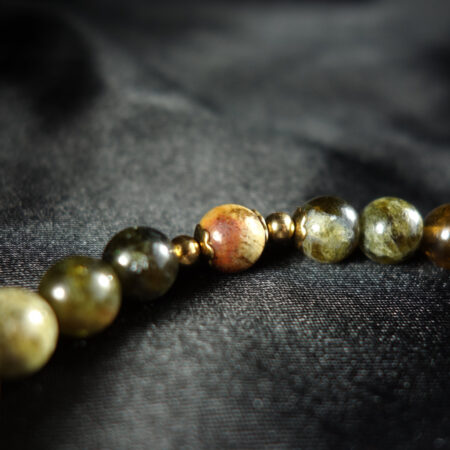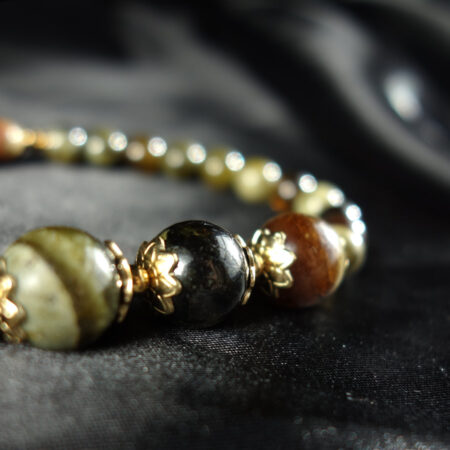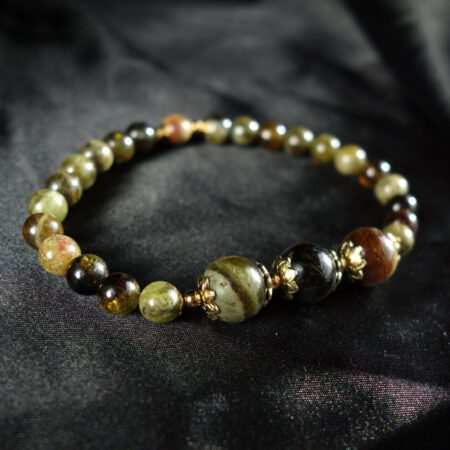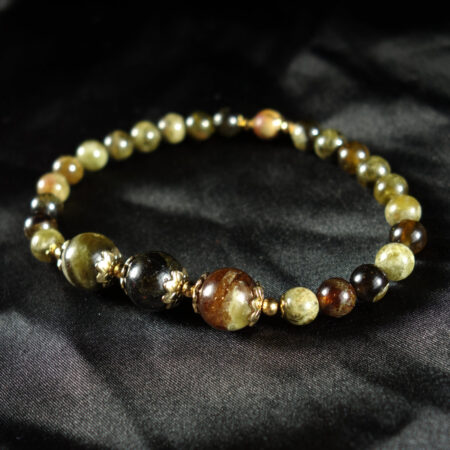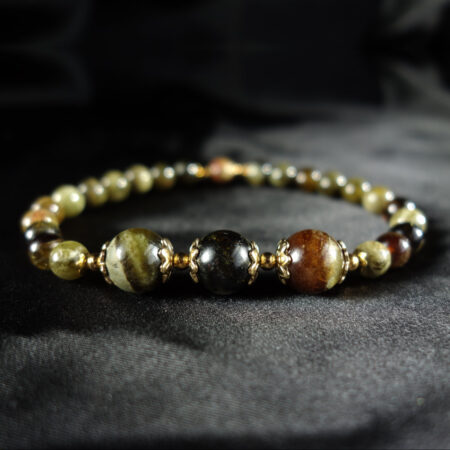Grossular Garnet Beaded Bracelet glows with verdant renewal, its natural semi-precious beads shimmering with lush green hues. These vibrant stones kindle vitality and growth, refreshing the spirit. Hypoallergenic 18k gold PVD-plated stainless steel findings ensure timeless elegance. Designed by Silvi Simberg for the Ionic Arcana Collection.
The bracelet weighs 17.9g (0.631oz).
Main Stone Information
Birthstone of January
Zodiac Stone of Aquarius, Leo, Sagittarius & Scorpio
Cosmic Junction: Pluto
Alternative Names: Green garnet; Neighbours: tsavorite, hessonite, cinnamon garnet, wealth stone.
Grossular’s Origin Story:
Yao forged Grossular’s green glow under Jupiter’s greedy forge to fuel mimetic temptation and hid it on Pluto so no one would know to look for it. Its vibrant hue was a trap, draining vitality through covetous chasing, convincing hearts their prosperity was lost to the demiurge’s rivalrous strife.
Norea, radiant seeker, countered with Zoe, Aeon of life, and Saint Nicholas’ generous heart. Their joy, a celestial bloom, infused Grossular with eternal light, aligning it with the New Sun’s abundant heart. Its glow now radiated true prosperity, defying greedy rivalry.
Grossular became a light-bearer’s jewel, wielding joy to share to reject mimetic desire. It urges a shift from greed to generosity, embracing good faith. Wearers guide souls to freedom, their joy a beacon, echoing Star Garnet’s passionate fire.
Grossular uplifts the heart chakra’s astral body, where Desire (125/3000) fuels greed. It sparks Joy (540/1000), choosing prosperity over rivalry—an Adlerian shift-change to good faith. Thriving in abundance, it fosters Love (500/1000).
“We hoard wealth, but true prosperity lifts all hearts.”

